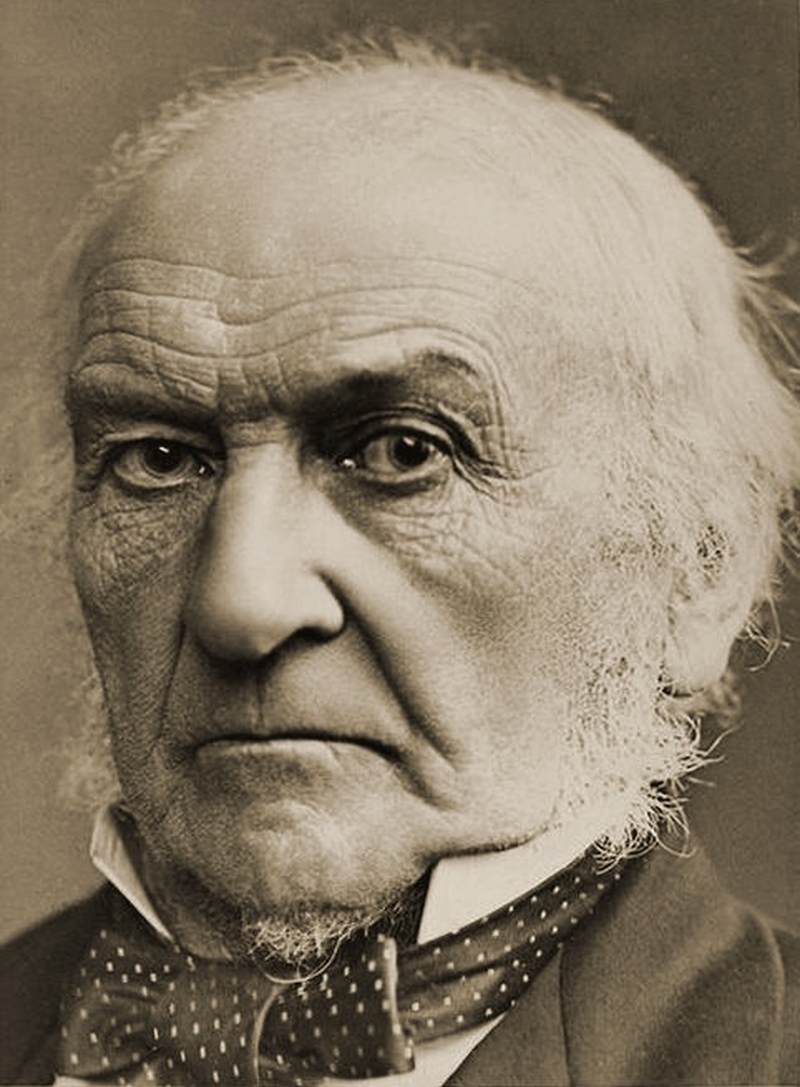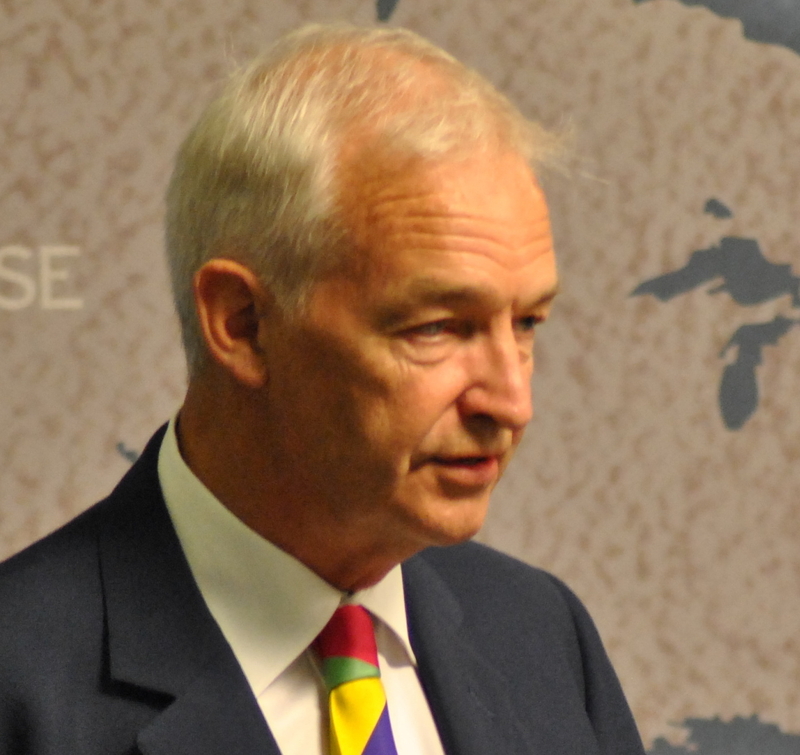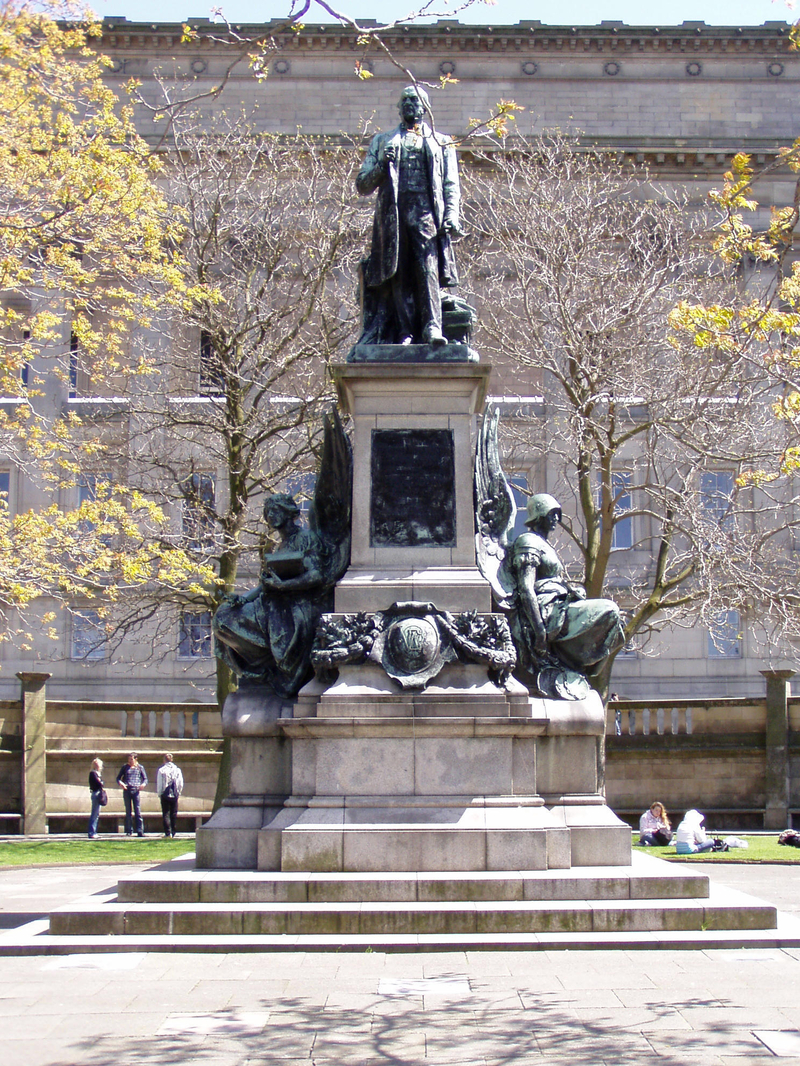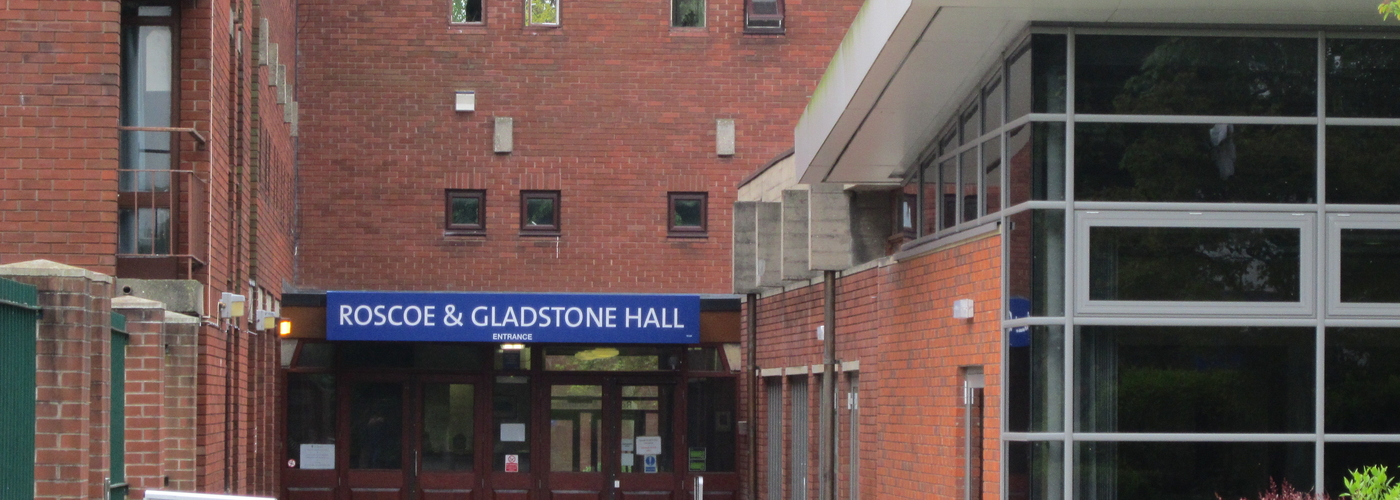Calls for 'racially marred' figure to be replaced by Jon Snow or Carol Ann Duffy
THE University of Liverpool has hit back at a campaign to have William Gladstone’s name erased from one of its buildings.
Hundreds of students have signed a petition to remove the Liverpool-born prime minister’s name from the Roscoe and Gladstone Hall because he spoke out against the abolition of slavery.
The rallying cry to get Gladstone gone was started by veterinary student Alisha Raithath who says the Victorian politician is "racially marred" and that his name should be replaced by that of journalist Jon Snow or poet Carol Ann Duffy to reflect an alumni of the university.
Raithath said on the guild’s website: "We believe that someone with this controversial background should not have a university hall named after them especially in a city where we try hard not to forget the atrocities that took place on our docks."


But the university says that instead of airbrushing “difficult history” from the names of its campus buildings and streets, such things should be seen as an important reminder of the past and should provoke student discussion.
“The names of buildings and streets around our campus reflect the multifaceted and sometimes difficult history of our country,” said a university spokesman.
“We believe these things serve as a valuable reminder of the past and, rather than changing them, welcome the fact they provide an opportunity for students to engage in discussion.
“Our renowned research in slavery reflects our resolve to keep difficult issues such as these on the agenda.”

Raithath's petition has been backed by more than enough names for it to be debated at Guild of Students meeting next Tuesday.
Sean Turner, its president, said: "The students at Guild Summit will discuss the idea and come to a consensus decision on what action, if any, should be taken by the guild.”
Erasing Gladstone’s name from a university building will still leave prominent reminders of him around the city.
His birthplace in Rodney Street is marked and there is a statue of him in St John’s Gardens behind St George’s Hall.
But as has happened in other places the call will prompt a debate about whether people from the past should be remembered or forgotten.
Liverpool City Council faced a call some years ago from former councillor Barbara Mace for a number of street signs in Liverpool, including Penny Lane, to be changed because they were named after citizens linked to slavery. The idea was dropped, but not before it attracted worldwide publicity.











